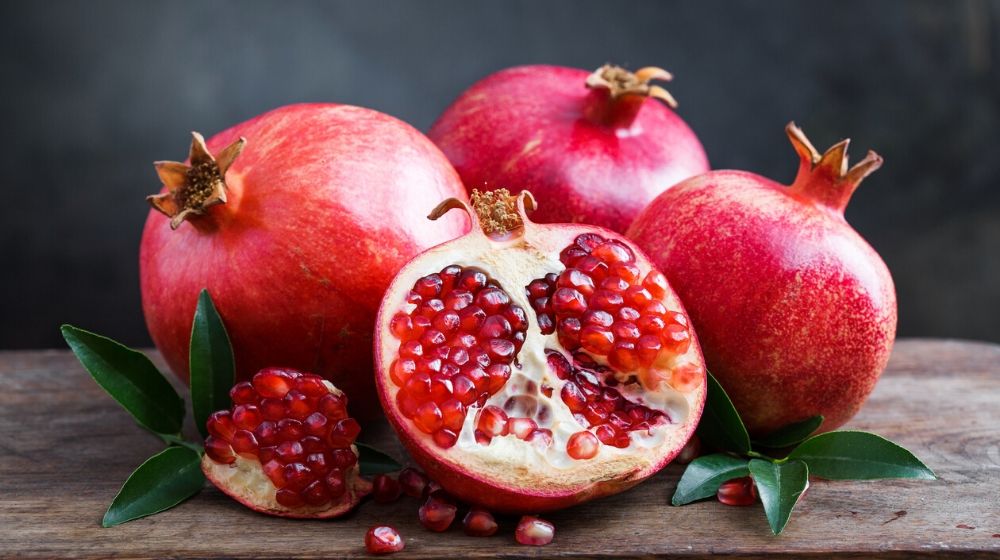Health
Pomegranates Provide Flavorful Health Benefits

Pomegranates are one of the healthiest foods for us, but they can be intimidating to eat. This deep red fruit is misleading with its tough skin and heavy weight, but the real jewels are inside the fruit. The weight of the pomegranate determines its juiciness. Select a ripe one with a deep red color and a soft feel. Keep the pomegranate in a cool, dry place, away from direct sunlight.
The key to eating a pomegranate is releasing those little red jewels inside the fruit. Wash under cold running water and cut off the stem end with a sharp knife. Next, score the pomegranate with cuts as if you are going to break it into quarters. Be sure to not cut too deep into the skin to keep the juice inside. Soak the fruit in a bowl of cold water for a few minutes to loosen the seeds inside. While the pomegranate is in the water, gently pull the fruit apart into quarters. Use your fingers or a spoon to separate the seeds from the skin. Scoop the seeds out of the water and let dry on a cloth for five minutes. Then they are ready to eat or can be stored for later use. Store them in a flat container in the refrigerator for up to three days. You also can store them in the freezer for up to 12 months. Spread the seeds in a single layer on a baking sheet and freeze for two hours. Then place the seeds in a freezer bag, label and date. This makes it convenient to use them throughout the year.
Pomegranate seeds can add some zing to fruit salads, oatmeal, green salads, yogurt or smoothies. Mix the seeds into muffin and pancake batters or use pomegranate juice to make soups, jellies, sorbets and flavor cakes and fruit desserts. The juice also can be used in salad dressings and glazes for meats.
One medium pomegranate can produce approximately 600 shiny red “jewels” known as arils. The aril is the juice-filled sac that surrounds the white seed. Many people enjoy the aril but discard the seed. The hard and fibrous seed is edible and provides nutritional value, including vitamin E, magnesium, fiber, antioxidants and polyunsaturated fat. The juice in the arils is the jewel that provides the most health benefits, especially the polyphenol antioxidants. Research shows that these antioxidants can help with heart health by lowering blood pressure, improve LDL cholesterol oxidation, prevent plaque buildup as well as protect from some cancers, including prostate cancer in men. Chronic inflammation is a factor in many serious diseases like heart disease, cancer, Type 2 diabetes, Alzheimer's disease and obesity. The antioxidants and vitamin C found in pomegranates provide powerful anti-inflammatory health benefits. In addition to buying fresh pomegranates, you can get similar health benefits from 100% pomegranate juice and extracts.
A word of caution for dog owners: pomegranates may cause digestive problems for dogs, so keep it away from pets.
Lisa McCoy is a family and consumer-sciences educator with University of Maryland Extension in Washington County.
© Copyright 2019 The Herald-Mail. All rights reserved.












